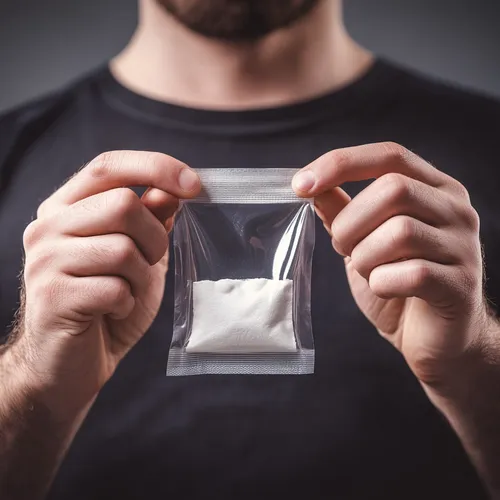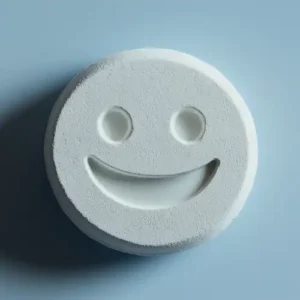The UK has one of the highest levels of Cocaine usage in Western Europe. Recreational use of the drug by British people is becoming commonplace. In fact, in May 2014 it was even reported that traces of cocaine had contaminated the public water supply!
Many people use Cocaine as it can give you a very powerful high. However, using the drug is not without its risks and you could be putting both your health and liberty at risk when you use Charlie.
Here are 20 things you might not have known about Cocaine:
1. Cocaine Use in the UK Is Rising
In 2018, the percentage of adults who said they had taken the drug the previous year was 2.6%, or about 875,000 people, the highest figure since 2008/09. This upward trend is concerning for public health. This trend is particularly pronounced among young adults aged 16-24, raising concerns about long-term public health implications.
2. It’s Purer Now Than Ever
The increase in the popularity of cocaine has happened at the same time as an increase in its purity. The purer the cocaine, the more potent its effects. The increased purity is partly due to more sophisticated production methods and competition among drug suppliers.
3. An Exaggerated Sense of Self-Confidence
Using cocaine can give you an exaggerated sense of self-confidence. This might mean that you end up taking risks that could cause you harm. The loss of inhibition and judgement under cocaine’s influence makes it more likely you will engage in dangerous behaviours. This false confidence can lead to poor decision-making in various aspects of life, including personal relationships and financial matters.
4. It Could Kill You
Overdose on cocaine and you could die. Cocaine-related deaths have been increasing in recent years. Even first-time users can experience fatal complications, such as heart attacks or strokes.
5. Cocaine & Alcohol Are Not Good Together
Taking cocaine with alcohol can be particularly dangerous — mixed together they can produce a toxic chemical called cocaethylene. The combination is much riskier than either drug alone. This combination not only increases health risks but also prolongs the euphoric effects, potentially leading to increased consumption and addiction.
6. Cocaine Gets Right up Your Nose!
The cartilage in your nose that separates the nostrils can be damaged when you snort cocaine. You could end up with one really big nostril! Frequent snorting can lead to loss of sense of smell, nosebleeds, and trouble swallowing. In severe cases, chronic cocaine use can lead to perforation of the nasal septum, requiring surgical intervention.
7. Cocaine Will Hurt Your Pocket Too
Cocaine is not cheap to buy — you could end up in a lot of debt paying for your habit! Cocaine addiction often causes severe financial troubles. The financial strain of a cocaine habit can lead to job loss, bankruptcy, and even criminal activities to support the addiction.
8. Cocaine Heats You Up
Your body temperature will rise and your heart will beat faster when you take cocaine. You may feel hot, start sweating, and become dehydrated. This increase in body temperature can lead to hyperthermia, a potentially life-threatening condition, especially in crowded or hot environments.
9. The Cocaine Crash Will Be Hard
As the effects of cocaine wear off, your body could crash and this comedown could last for days. The crash involves intense fatigue, depression, and cravings for more cocaine. The severity of the crash often leads users to seek more cocaine, creating a dangerous cycle of addiction.
10. Do You Know What’s in It?
Cocaine powder can be cut with all kinds of substances — wraps have been shown to be mixed with sugar, starch and, most commonly a local anaesthetic called Benzocaine. You really don’t know the purity or safety of street cocaine. Some cutting agents can be toxic or cause allergic reactions, adding another layer of risk to cocaine use.
11. It’s a Short Buzz
The peak effects of smoking crack usually last for just a couple of minutes. The overall “buzz” continues for 10 minutes at the most. This leads to repeated dosing and binges. The brevity of the high often leads users to engage in dangerous binge patterns, consuming large amounts in a short time.
12. It’s Not for Mothers-To-Be
If you are pregnant and using cocaine, you run the risk of miscarriage or your baby having a low birth weight. Cocaine use during pregnancy can lead to lifelong physical and mental disabilities in babies. Cocaine use during pregnancy can also lead to placental abruption, a serious condition that can be fatal for both mother and baby.
13. You Won’t Want to Get Caught in Possession
If you get caught by the police with cocaine in your possession you will be charged and you could face up to 7 years in jail. A drug conviction can negatively impact your life in many ways. A drug conviction can also severely limit employment opportunities and damage personal relationships.
14. You May Never Go to Florida Again!
A conviction in the UK for using or possessing drugs could cause you problems in getting a visa to travel to some countries, such as the USA. A drug record could hamper international travel opportunities. Some countries may permanently ban entry for individuals with drug-related convictions, impacting future travel and work opportunities.
15. A Urine Drug Test Can Detect Cocaine for 5 Days
All traces of cocaine leave your body 12 hours after last use. However, cocaine use can still be detected by a urine drug test up to 5 days later. So cocaine use can be detected several days after the effects have worn off. The detection window can be longer for heavy or chronic users, potentially up to 10 days or more.
Zoom Testing has one of the widest ranges of cocaine drug testing kits in the UK.
16. … Although It Is Actually Testing for Benzoylecgonine
Most urine drug tests for Cocaine actually detect benzoylecgonine which is the metabolite for Cocaine. The tests don’t detect cocaine itself. Benzoylecgonine has a longer half-life than cocaine, which is why it’s detectable for a longer period.
17. A Saliva Drug Test Can Detect Cocaine for 2 Days
A saliva drug test for cocaine will be able to detect the presence of the drug in your system for up to 48 hours after last use. Saliva tests can catch more recent cocaine use. This shorter detection window makes saliva tests popular for workplace drug testing, especially for detecting recent use.
18. A Hair Drug Test Can Detect Cocaine for 90 Days
A hair drug test for cocaine will be able to detect if you have taken the drug in the last 90 days! Hair tests give the longest detection window for cocaine use. Hair tests can also provide information about patterns of use over time, distinguishing between occasional and regular users.
19. Cocaine Can Cause Heart Problems
Cocaine puts a tremendous strain on your heart and cardiovascular system. It causes your heart rate and blood pressure to spike, constricts your blood vessels, and can trigger irregular heart rhythms. This makes cocaine highly dangerous for people with pre-existing heart conditions. Even in healthy individuals, cocaine can cause chest pain, heart attacks, strokes, and sudden death due to its cardiovascular effects. These heart-related complications are one of the most common medical emergencies and causes of death associated with cocaine use. Regular cocaine use can lead to long-term cardiovascular damage, including accelerated atherosclerosis and chronic hypertension.
20. Cocaine Damages Your Brain
Cocaine powerfully impacts the brain by flooding it with dopamine, a feel-good neurotransmitter. With repeated use, cocaine depletes dopamine levels, which can damage neurons and alter the brain’s reward pathways. This leads to strong cravings and addiction. Studies show that the brain actually shrinks with long-term cocaine use, with grey matter loss in areas involved in motivation, decision-making, inhibition, and memory. This shrinking is associated with worse performance on cognitive tests. The brain damage from cocaine may persist even after someone becomes abstinent, contributing to relapse. The cognitive impairments caused by long-term cocaine use can persist for months or even years after achieving sobriety, affecting various aspects of daily life.
Photo by Anthony Cunningham for Zoom Testing
Zoom Testing is a leading UK drug testing company and a supplier of Drug Test Kits.
This post was originally published in 2014 and last updated in October 2024.





